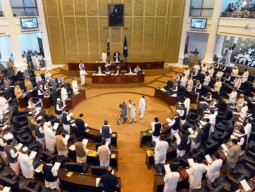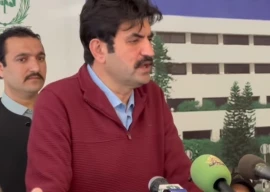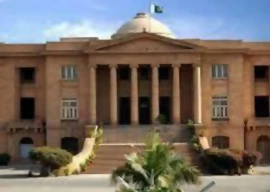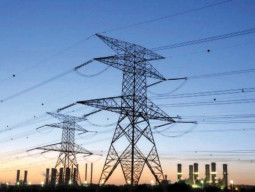
Zardari was acquitted from both the SGS and Cotecna corruption cases because the original records of the cases went missing, and could not be found. In fact, the cases were decided on the grounds that the original record could not be produced before the court.
In line with legal practice around the world, cases are decided on the basis of the records presented before the court. If files go missing, assumptions and conjecture alone do not hold water, and thus cannot lead to convictions.
In a country like ours, if a former president needed almost 16 years to be acquitted of charges, imagine how much time and money a common man needs to continue a legal battle. Except for the five years in which Zardari enjoyed presidential immunity, what explanation can the National Accountability Bureau (NAB) give in their defence for taking a decade only to meet with failure.
After all these years, NAB authorities still say that cases were decided in a “hasty manner”, and have subsequently challenged the acquittal in both corruption references in a high court.
NAB authorities maintain that the judge of the accountability court “did not pay any heed to summon” the original record from the office of the Supreme Court. In his verdict, the accountability court judge however, noted that the prosecution had failed to produce “the best evidence”.
“If the best evidence is withheld, then, an adverse presumption can be inferred,” the judge held.
The SGS case is the continuance of a reference accusing the former Prime Minister Benazir Bhutto and her spouse, Zardari, of having made unlawful financial gains from a contract between the company and the government. The Cotecna case concerns the award of a contract to the Swiss company after allegedly receiving a six per cent commission on revenue proceeds.
The story of missing files does not end here.
In the lower courts, several cases are pending merely because the relevant files have gone missing. In a recent case, a district judge of Islamabad registered a criminal case against three of his own staffers, after it emerged that the original record of a case was stolen from the courtroom.
Speculating on how the files vanish, sources at the district court say that the staffers are known to leave the documents at photocopy shops, at the behest of litigants, who say they require copies of certain documents in the case.
Sources say there have been several instances of case files having gone missing during such requests, which is a violation of the standard procedure for acquiring copies of files.
In the trial of the former president, neither fresh evidence, nor original foreign documents have been tracked down till date. As a result, witnesses refrain from testifying in the absence of original documents, as the authenticity of photocopies cannot be verified.
In addition, witnesses in the cases had no clue about the ownership of the offshore companies. The inquiry and investigation officers exhonerated Zardari from criminal liability due to the non-existence of evidence against him on record.
And all this because the burden of proof is always on the shoulders of the prosecution, and decisions are made on the prosecution’s evidence.
Missing court records will keep resulting in adverse decisions. Besides, what better help can suspects receive than knowing that their track records no longer exist?
Murder, corruption, robbery, rape and treason are only valid if they can be substantiated in court. Otherwise, charges are mere allegations.
Published in The Express Tribune, December 14th, 2015.


1737725437-0/Prince-(1)1737725437-0-165x106.webp)






1736070587-0/Express-Tribune-(2)1736070587-0-270x192.webp)



1737614355-0/Express-Tribune-(1)1737614355-0-270x192.webp)

1737546248-0/Waqas-(13)1737546248-0-270x192.webp)







COMMENTS
Comments are moderated and generally will be posted if they are on-topic and not abusive.
For more information, please see our Comments FAQ